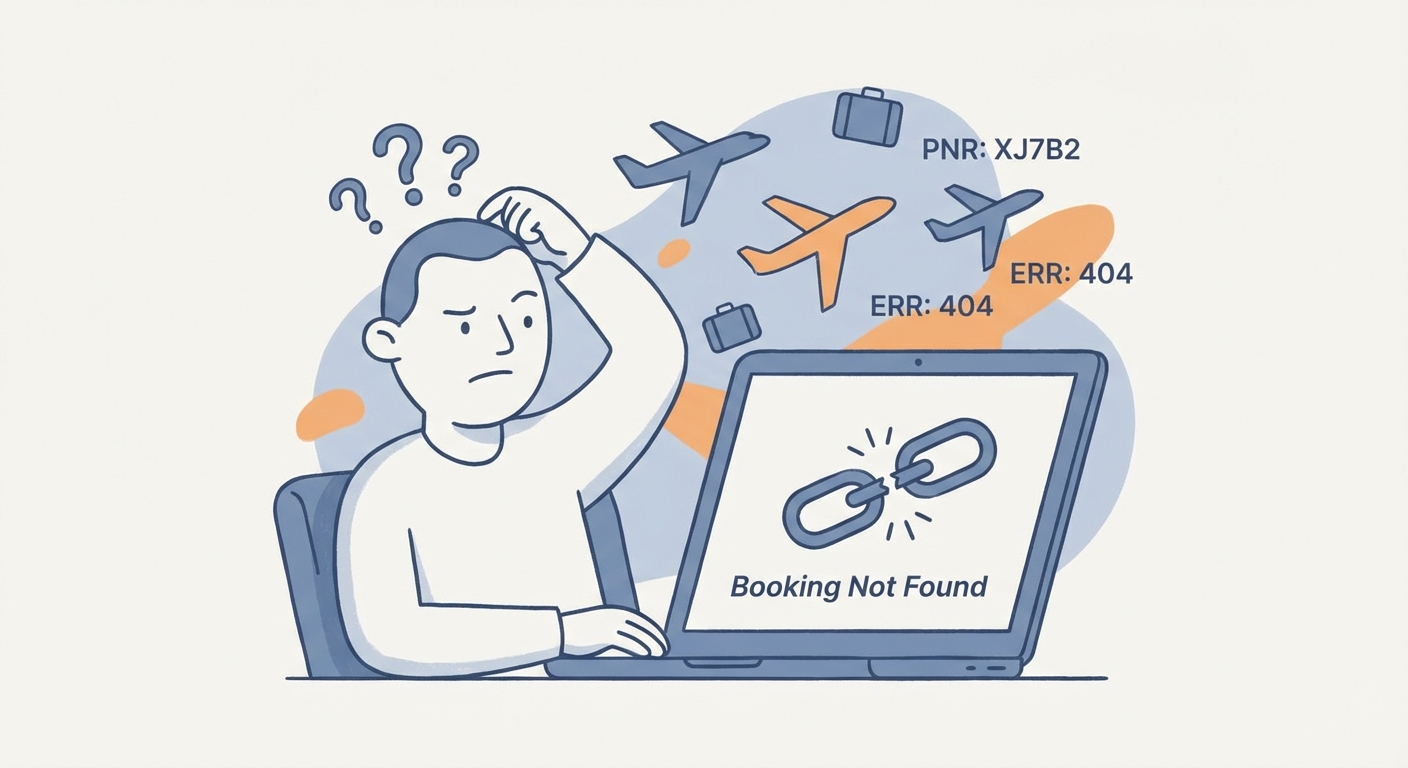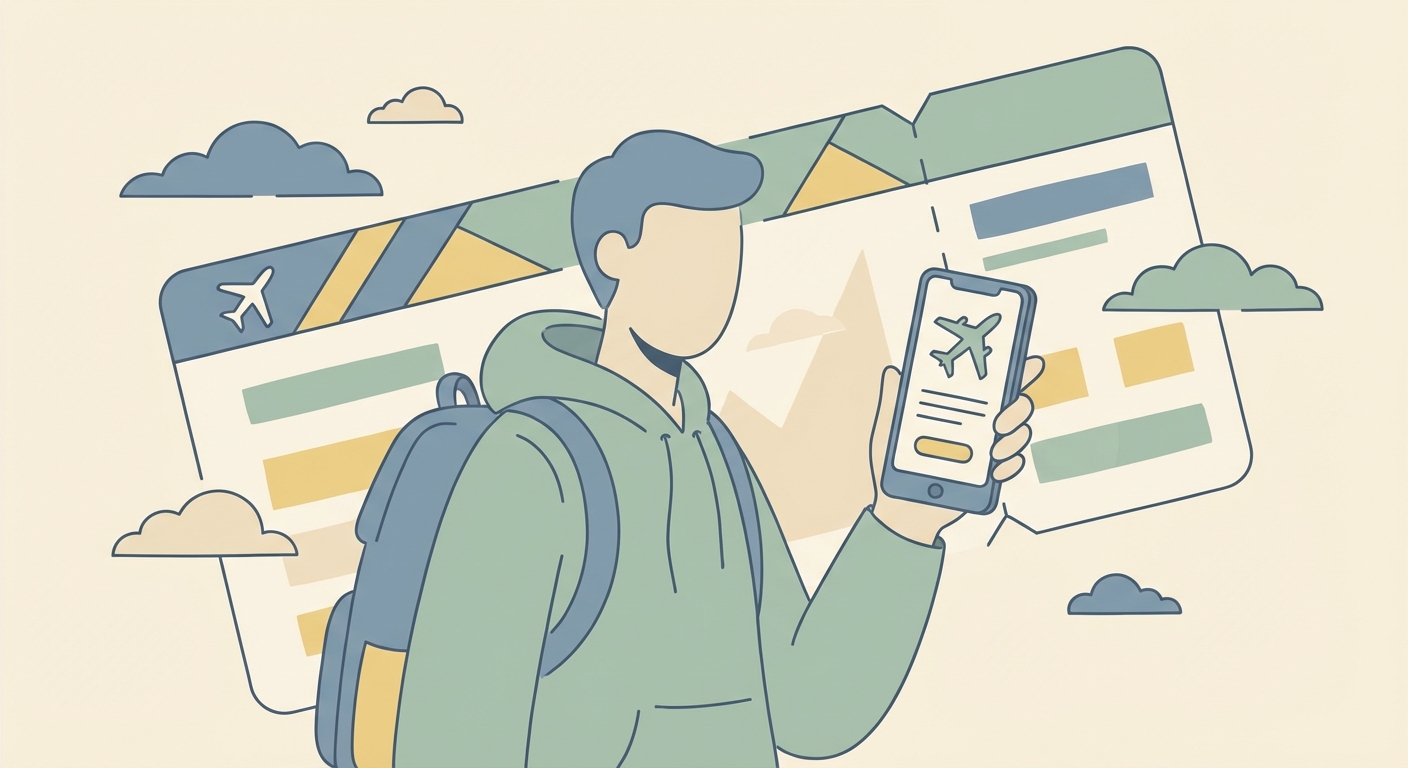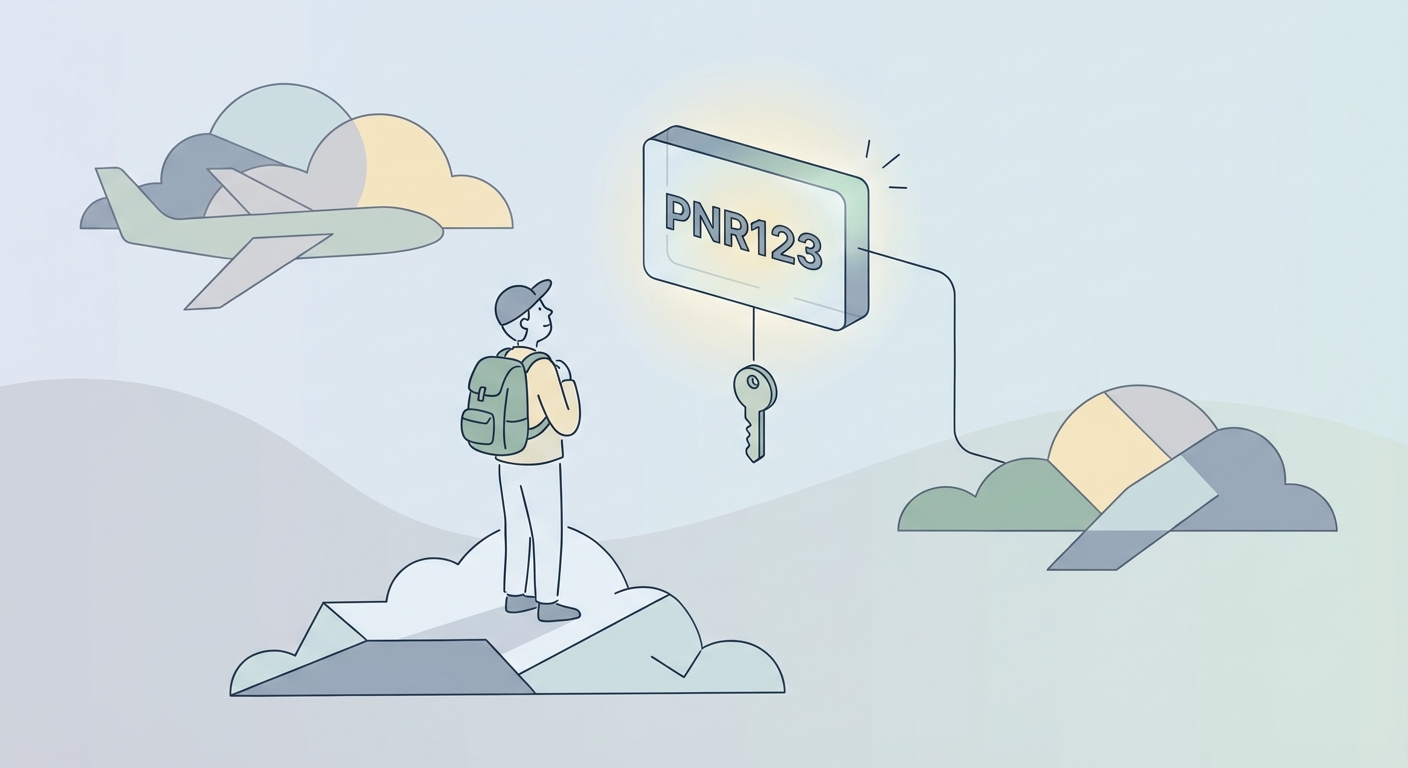Unlock Your Wanderlust: How Location-Based Advertising Fuels Your Next Adventure
The Power of 'Near Me': Location-Based Advertising Explained
Imagine your phone buzzing with an offer for a guided hike just as you reach the trailhead. That's the power of location-based advertising, connecting you with relevant adventures precisely when and where you need them.
Location-based advertising (LBA) delivers targeted ads to consumers based on their current or past physical locations. It's about reaching the right person, at the right place, and at the right time.
LBA uses geolocation technology, including GPS, Wi-Fi, and beacons, to pinpoint the location of mobile devices. This data allows businesses to send timely and relevant offers, promotions, and information directly to potential customers. The goal? To drive engagement and increase conversions by providing value in the moment.
For example, a coffee shop might send a discount code to your phone as you walk by, enticing you to stop in for a caffeine boost. Retailers use geo fencing to alert you to sales when you're near their store What is Location-Based Marketing? A Comprehensive Guide - a detailed explanation of location-based marketing strategies.
- Relevance: You only see ads for experiences that are actually accessible and interesting to you, in your current location.
- Spontaneity: Discover hidden gems and last-minute deals on activities you wouldn't have found otherwise.
- Personalization: Ads cater to your specific needs and interests based on your travel style and current surroundings.
LBA helps you find unique opportunities. Imagine discovering a local gear shop with a sale on hiking boots just before hitting the trails, enhancing your adventure with the right equipment at the right price.
As mobile technology advances, LBA is also becoming increasingly sophisticated. Ai and machine learning are now being integrated to provide even more personalized and relevant recommendations. For instance, ai can analyze your past travel patterns and current location to suggest a lesser-known, but highly-rated, local eatery that aligns with your culinary preferences, or recommend a specific trail based on your fitness level and the current weather. (A systematic review using a Human-In-The-Loop model) Location-based Advertising Market Size - By Advertising Type (Push, Pull), Type (Geotargeting, Geofencing, Beaconing, Mobile Targeting, Geo-conquesting), End User (Travel & Hospitality, Entertainment & Media, Healthcare) & Forecast 2023 - 2032 - a report on the growth in ai and ml integration for sophisticated data analysis.
Now that you understand the basics, let's explore how LBA specifically caters to the needs of adventure travelers.
Mapping Out the Territory: Types of Location-Based Travel Advertising
Did you know that location-based advertising is not a one-size-fits-all strategy? (Location-based advertising on Paid Social [2024 Guide] - Hunch) Different techniques exist to connect with travelers, each with unique advantages.
Geo-targeting involves reaching travelers based on their broader geographic location. Think cities, regions, or even entire countries.
- This type of LBA is useful for promoting regional events. You can also use it to advertise national park deals and country-specific travel packages.
- For example, someone in Chicago planning a trip to Colorado might see ads for hiking trails in the Rocky Mountains.
Geo-fencing takes a more precise approach by establishing virtual perimeters around specific locations. Airports, landmarks, and hotels are some examples.
- Use cases for geo-fencing include sending welcome messages to travelers when they arrive at an airport. You can also promote nearby attractions to tourists in a specific area.
- Imagine a museum sending a discount code to a traveler's phone when they enter the geo-fenced area around the building.
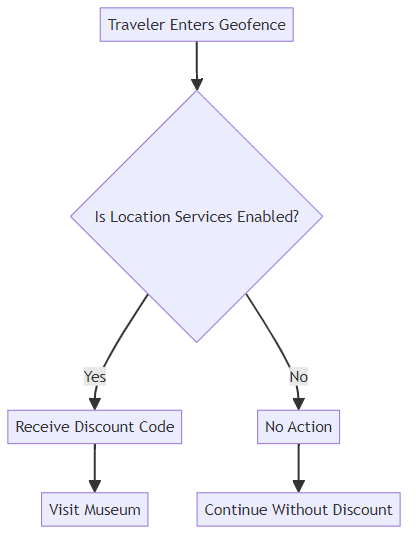
Proximity marketing uses technologies like Bluetooth beacons to connect with travelers in a very close range. In other words, it helps businesses send messages to potential customers nearby.
- This type of LBA is useful for in-store promotions, event notifications, and personalized greetings.
- For example, a surf shop can send a discount to users who are within Bluetooth range of the store, encouraging them to come inside and shop.
Understanding these different types of location-based advertising helps businesses tailor their campaigns for maximum impact. Let's see how these strategies play out in the real world.
Adventure Awaits: Real-World Examples in the Travel Industry
Did you know that location-based advertising can help travelers discover hidden gems they never knew existed? Let's explore some real-world examples of how travel companies use LBA to enhance the adventure experience.
Imagine finishing a challenging hike and receiving a notification for a discounted hotel room nearby. Hotels can use geo-fencing to target hikers near popular trails, offering deals to fill empty rooms and provide convenient lodging. This strategy benefits both the hotel and the weary traveler.
- Scenario: A hotel close to a well-known hiking trail sends a discount offer to hikers in the vicinity after a long day.
- Benefit: The hotel increases occupancy, and hikers gain a comfortable, nearby rest stop.
- Strategy: The hotel uses geo-fencing technology to target hikers within a specific radius of the trailheads.
Arriving in a new city can be overwhelming. Tour operators can promote walking tours to tourists who have just arrived, helping them discover the city's highlights What is Location-Based Marketing? A Comprehensive Guide - explains how businesses can use location to send tailored content and promotions to customers.
- Scenario: A tour company advertises walking tours to tourists right after they arrive in a new city.
- Benefit: The tour company increases bookings, and tourists enjoy curated local experiences.
- Strategy: The company uses geo-targeting on social media platforms to reach travelers as they arrive in the city.
Geo-conquesting is a competitive strategy where businesses target consumers near a competitor’s location with enticing offers. A new adventure park can send offers to people near an older, established park to attract their business. This tactic can sway potential customers with better deals or unique experiences. Technically, this often involves using precise GPS data to identify users within a competitor's defined geofence and then serving them targeted ads. Ethically, it's important to ensure these ads are not misleading and that the targeting is done without infringing on user privacy beyond what's agreed upon. What is Location-Based Marketing? A Comprehensive Guide - defines geo conquesting as a competitive tactic that involves targeting consumers near or visiting a competitor’s location.
- Definition: Geo-conquesting involves targeting consumers near a competitor’s location to draw them away with superior offers.
- Example: A new adventure park sends promotional deals to individuals near a more established park.
- Strategy: This involves using GPS technology to target customers specifically in the competitor’s location.
These examples show how location-based advertising creates opportunities for adventure travelers. Now, let's look at how you, as a traveler, can make the most of these opportunities.
Maximize Your Trip: Tips for Using Location-Based Advertising Effectively
Location-based advertising can enhance your adventure, but it's important to use it wisely. Are you ready to make the most of location-based advertising without draining your battery or compromising your privacy?
When you opt-in to share your location, you unlock a world of personalized travel recommendations. You can receive relevant offers for nearby restaurants, hiking trails, or gear shops. However, it's crucial to manage your privacy.
- Review app permissions regularly. Only grant location access to apps you trust and that provide clear value in exchange for your data.
- Use the "While Using the App" permission setting. This limits location tracking to when the app is actively running, reducing background data collection.
- Take control of your data by checking the privacy settings on your device.
Constant location tracking can deplete your phone's battery quickly, especially on long travel days. Extended GPS use drains your battery.
- Limit location access to essential apps. Turn off location services for apps that don't require it.
- Enable battery-saving mode. This reduces background activity and can extend your battery life.
- Consider using Wi-Fi instead of GPS when possible. Wi-Fi uses less power for location tracking.
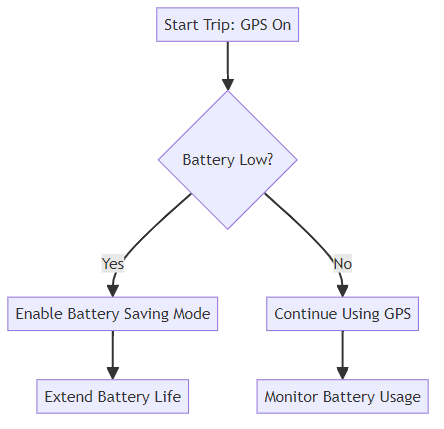
Not all location-based ads offer genuine value. Some deals might not be worth your time or money. Being selective ensures you get the most out of LBA.
- Check reviews and compare prices. Make sure the offer aligns with your travel style and interests.
- Look for offers that enhance your experience. Focus on deals that provide convenience or access to unique experiences.
- Be wary of overly aggressive or intrusive ads. Too many notifications can detract from your adventure.
By using location-based advertising strategically, you can enhance your travel experiences. Now, let's dive into the important stuff: privacy and ethics.
Privacy and Ethics: Navigating the Location Data Landscape
Did you know that your every move could be tracked and analyzed? Location data offers incredible potential, but it also raises important questions about data privacy and ethical practices.
Companies collect location data through various methods. GPS, Wi-Fi, Bluetooth, and cellular data all contribute to pinpointing your location. Transparency is vital. Companies should clearly explain how they use your location data.
You have the right to opt-out of location tracking and control your data.
Potential risks include data breaches, misuse of personal information, and unwanted tracking. Protect yourself by using strong passwords, reviewing privacy policies, and limiting data sharing. Regulations like GDPR (in Europe) and CCPA (in California) exist to protect your data.
Here's how you can check your location settings on an iPhone:
- Open the Settings app.
- Tap Privacy & Security, then Location Services.
- Review which apps have access to your location.
- Adjust permissions as needed.
And for Android users:
- Open the Settings app.
- Tap Location.
- Under "App permissions," review which apps have access to your location.
- Adjust permissions as needed.

Travel companies have a responsibility to handle location data ethically. Be upfront about data collection practices. Give travelers control over their location data. Protect user data from unauthorized access and misuse.
“When location-based advertising is concerned, the answer is – it depends. Marketers have to be very careful when collecting user data – it should be in line with user consent where they should be clearly informed where and how you’re going to use their data and how it will benefit them.” - Trackier - an article that explores the need for user consent.
Many travel companies use geo-location marketing to provide targeted offers to tourists. Hotels and airlines offer promotions to users who arrive in specific cities or regions, leveraging geo based marketing to drive bookings.
By understanding the privacy and ethical implications, you can confidently navigate the location data landscape. Now, let's see how a tool like GoTriply can help you plan your next adventure.
Plan Your Next Adventure Seamlessly with GoTriply
Ready to ditch the endless search for the perfect adventure? Location-based advertising makes personalized trip planning easier than ever.
GoTriply uses ai-powered trip planning to create itineraries that match your unique preferences. It integrates location-based insights to suggest activities and attractions that are not only aligned with your interests but also conveniently located near your current or planned accommodations. For example, if you're staying in a hotel in Banff, GoTriply might highlight nearby hiking trails with stunning views that are easily accessible from your lodging, or suggest a local restaurant with a great patio that's just a short walk away. The platform allows you to customize your travel plans, whether you're after thrilling adventures or relaxing getaways.
- AI-Driven Customization: GoTriply's ai analyzes your interests and location data to suggest personalized itineraries.
- Wide Range of Activities: The platform offers options from well-known attractions to hidden local gems, often highlighting those that are geographically relevant to your trip.
- Flexible Planning: Users can easily adjust plans to fit their pace and preferences, with location-based suggestions always at the forefront.
GoTriply simplifies the booking process for hotels, activities, and more. You can access a variety of international and domestic travel packages to suit any budget. The platform is designed to help you plan your dream vacation with ease.
- Simplified Booking: GoTriply streamlines booking for hotels, experiences, and activities.
- Diverse Travel Packages: It provides travel packages for all budgets.
- Step-by-step assistance: With GoTriply you can plan your dream vacation with ease.
With GoTriply, you can say goodbye to endless planning and hello to seamless adventure. Next, let's look at what the future holds for location-based advertising in travel.
The Future of Travel: Emerging Trends in Location-Based Advertising
Imagine receiving personalized recommendations for hidden hiking trails just as you arrive in a new national park. Location-based advertising is poised to revolutionize the travel experience through emerging technologies.
Ai algorithms will analyze location data and user behavior to deliver hyper-personalized ads. Expect more relevant and timely travel recommendations. For instance, you might receive ads for specific hiking gear based on your past hiking locations and current weather conditions, ensuring you are always prepared for your next adventure.
As ai becomes more sophisticated, these recommendations will adapt in real-time based on your movements and preferences. This level of personalization ensures that you only see offers and information that truly enhance your travel experience.
AR will overlay digital information onto the real world, enhancing travel experiences. Imagine seeing virtual promotions for nearby restaurants as you walk down the street or using AR to view historical information about landmarks as you explore a new city.

These AR experiences can transform how you interact with your environment, turning everyday destinations into interactive adventures. By blending the digital and physical worlds, AR creates new opportunities for discovery and engagement.
Faster and more reliable mobile connections will enable more seamless location-based experiences. Real-time location tracking, instant ad delivery, and enhanced AR applications will become the norm.
5G connectivity ensures that you receive information and offers without delay. This improved user experience allows for more effective advertising campaigns, benefiting both travelers and businesses.
As mentioned earlier, balancing the benefits of location-based advertising with privacy concerns is crucial. By embracing these emerging trends responsibly, the travel industry can unlock new possibilities for adventure and exploration.


